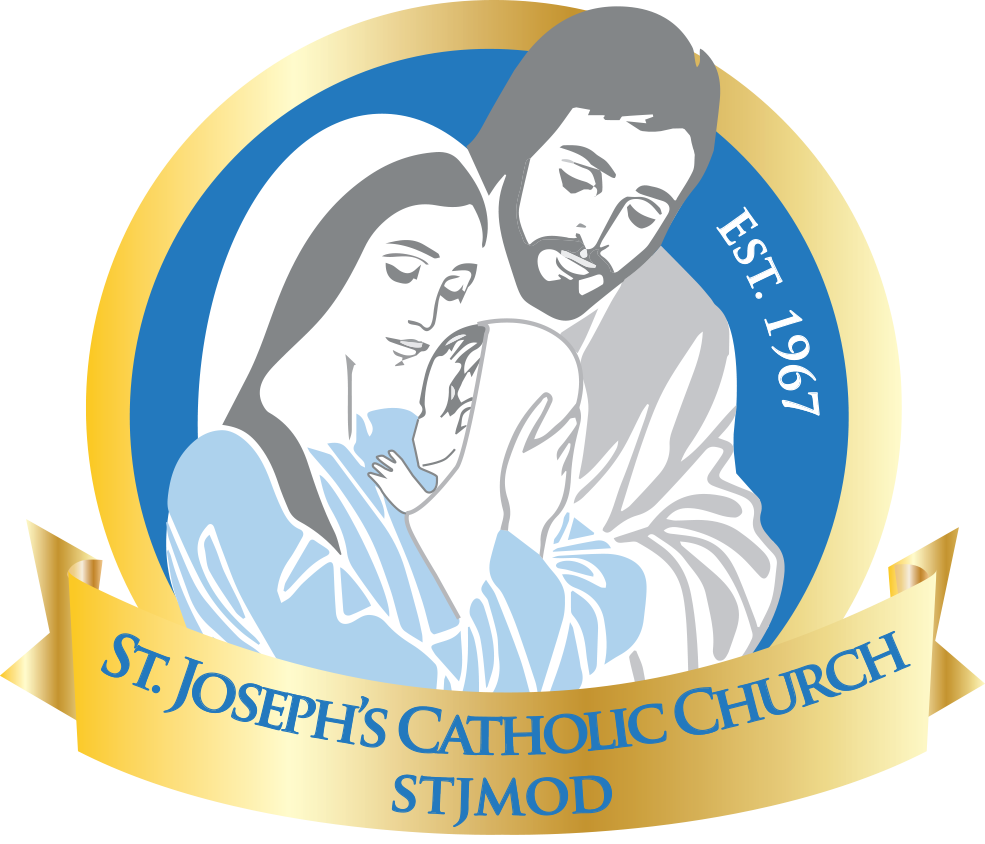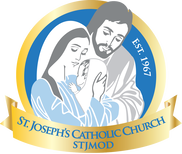Defend the Faith
Talking Points
In Times of Scandal
Many of you are being asked questions in your workplace, community and even your own family. In a time of crisis or scandal, we need your help more than ever so we can, together, create a place where common questions can be answered and shared with parishioners.
We’ve set up a place here on our website where there are resources. We’ve also set up a submission form where you can submit questions or comments. WE ARE ALL IN THIS TOGETHER. We will monitor and update with answers to questions and other developments.
1. “We support the Church, we do not support bad behavior.”
The Church is the immaculate Bride of Christ and the Mystical Body of Christ, in the sense that the Sacraments are holy and there is no stain of error in Her teachings. We are grieved and angered when sinful individuals, and even leaders within the Church, are breaking the wise teachings of the Church. As Bishop Cotta shared with us, “…enough is enough!” We do not defend bad behavior. Ever.
2. “Don’t leave Jesus because of Judas.”
Jesus chose twelve men to be the first Bishops, even though he knew that some of them would betray Him. The Church has survived despite bad priests and bishops. We should not leave the Church. Instead, we should try to lead the Church. You can help lead by sharing your questions and concerns above.
3. “Since 2002 the Catholic Church has implemented strict safeguards to prevent abuse.”
Catholic parishes and institutions have developed “Safe Environment Protocols” which include reporting standards, fingerprinting and training of all church clergy, ministers and employees who work with children. These are so well-formulated that they are now being emulated by non-Catholic institutions. It is clear that, even though we at St. Joseph’s parish follow these protocols, it has not been done in all areas of the Church. This must change.
4. “This is the time to unite, not divide.” We will pray, as a Catholic family, and let the light of His Church shine, so that truth and just consequences can be achieved.
We’ve set up a place here on our website where there are resources. We’ve also set up a submission form where you can submit questions or comments. WE ARE ALL IN THIS TOGETHER. We will monitor and update with answers to questions and other developments.
1. “We support the Church, we do not support bad behavior.”
The Church is the immaculate Bride of Christ and the Mystical Body of Christ, in the sense that the Sacraments are holy and there is no stain of error in Her teachings. We are grieved and angered when sinful individuals, and even leaders within the Church, are breaking the wise teachings of the Church. As Bishop Cotta shared with us, “…enough is enough!” We do not defend bad behavior. Ever.
2. “Don’t leave Jesus because of Judas.”
Jesus chose twelve men to be the first Bishops, even though he knew that some of them would betray Him. The Church has survived despite bad priests and bishops. We should not leave the Church. Instead, we should try to lead the Church. You can help lead by sharing your questions and concerns above.
3. “Since 2002 the Catholic Church has implemented strict safeguards to prevent abuse.”
Catholic parishes and institutions have developed “Safe Environment Protocols” which include reporting standards, fingerprinting and training of all church clergy, ministers and employees who work with children. These are so well-formulated that they are now being emulated by non-Catholic institutions. It is clear that, even though we at St. Joseph’s parish follow these protocols, it has not been done in all areas of the Church. This must change.
4. “This is the time to unite, not divide.” We will pray, as a Catholic family, and let the light of His Church shine, so that truth and just consequences can be achieved.
Question:
If Galileo was convicted of being "vehemently suspect of heresy" by the 1633 Catholic Magisterium (Pope Urban VIII) for promoting heliocentrism, then does that mean that the 1616 Catholic Magisterium (Pope Paul V) considered Sun moving/Earth fixed cosmology to be a matter of the faith and declared/defined heliocentrism to be a formal heresy prior to the 1633 trial in order for Galileo to be convicted of being vehemently suspect of that heresy by the 1633 Catholic Magisterium?
Reply:
This is a good, detailed question. 😊 The “Galileo Affair” is unfortunately fraught with myths and legends, so picking through the history can be difficult. A brief summary of the long and complicated answer begins with the historical context.
First, the stance of the Church toward non-magisterial biblical interpretation was one of extreme caution. This is understandable given the chaos that Luther and the other “reformers” had unleashed on the world with their advocacy of private interpretation of the Scriptures (which had just barely become widely available due to the printing press).
Second, due to the general acceptance of Aristotelian philosophical cosmology, most of the educated world had a geocentric view of the universe. This millennia-spanning view went virtually unchallenged until Copernicus suggested heliocentrism in his book On the Revolution of the Celestial Orbs (which he dedicated to Pope Paul III). Because this new theory was not widely accepted, had its own scientific problems, and because it called the old paradigm (which the Church had accepted, because science did) into question, the Church did not want it exposed to the public yet. So in 1616 the Church prohibited the reading of Revolutions. (After a few minor edits, making sure that the sun theory was presented as purely hypothetical, it was allowed again in 1620 with the blessing of the church.)
In 1623 Pope Urban VIII was elected – and he was a great admirer of Galileo. The Pope allowed heliocentrism to be presented and argued, but asked that Galileo not take sides. Basically, Galileo blew it. He not only took sides but mocked the Pope in his presentation. Bad move! So his case was handed over to the Inquisition and he was found guilty of suspected heresy in 1633. Now, “suspected heresy” is not formal (nor even material) heresy. Formal heresy only occurs when a given belief has been infallibly decreed as part of the faith and one officially, knowingly, and willfully rejects it. However, no infallible action had ever been taken on the issue of geo- vs. helio-centrism because neither science nor the Church had settled on either view (again, the Church had simply adopted geo- because science had).
Thus, Galileo’s “punishment” (one day in prison and the being confined to his home) basically had to do with his refusal to follow the Church’s demands. He was not being attacked for his scientific theories as such.
If Galileo was convicted of being "vehemently suspect of heresy" by the 1633 Catholic Magisterium (Pope Urban VIII) for promoting heliocentrism, then does that mean that the 1616 Catholic Magisterium (Pope Paul V) considered Sun moving/Earth fixed cosmology to be a matter of the faith and declared/defined heliocentrism to be a formal heresy prior to the 1633 trial in order for Galileo to be convicted of being vehemently suspect of that heresy by the 1633 Catholic Magisterium?
Reply:
This is a good, detailed question. 😊 The “Galileo Affair” is unfortunately fraught with myths and legends, so picking through the history can be difficult. A brief summary of the long and complicated answer begins with the historical context.
First, the stance of the Church toward non-magisterial biblical interpretation was one of extreme caution. This is understandable given the chaos that Luther and the other “reformers” had unleashed on the world with their advocacy of private interpretation of the Scriptures (which had just barely become widely available due to the printing press).
Second, due to the general acceptance of Aristotelian philosophical cosmology, most of the educated world had a geocentric view of the universe. This millennia-spanning view went virtually unchallenged until Copernicus suggested heliocentrism in his book On the Revolution of the Celestial Orbs (which he dedicated to Pope Paul III). Because this new theory was not widely accepted, had its own scientific problems, and because it called the old paradigm (which the Church had accepted, because science did) into question, the Church did not want it exposed to the public yet. So in 1616 the Church prohibited the reading of Revolutions. (After a few minor edits, making sure that the sun theory was presented as purely hypothetical, it was allowed again in 1620 with the blessing of the church.)
In 1623 Pope Urban VIII was elected – and he was a great admirer of Galileo. The Pope allowed heliocentrism to be presented and argued, but asked that Galileo not take sides. Basically, Galileo blew it. He not only took sides but mocked the Pope in his presentation. Bad move! So his case was handed over to the Inquisition and he was found guilty of suspected heresy in 1633. Now, “suspected heresy” is not formal (nor even material) heresy. Formal heresy only occurs when a given belief has been infallibly decreed as part of the faith and one officially, knowingly, and willfully rejects it. However, no infallible action had ever been taken on the issue of geo- vs. helio-centrism because neither science nor the Church had settled on either view (again, the Church had simply adopted geo- because science had).
Thus, Galileo’s “punishment” (one day in prison and the being confined to his home) basically had to do with his refusal to follow the Church’s demands. He was not being attacked for his scientific theories as such.
Your browser does not support viewing this document. Click here to download the document.




